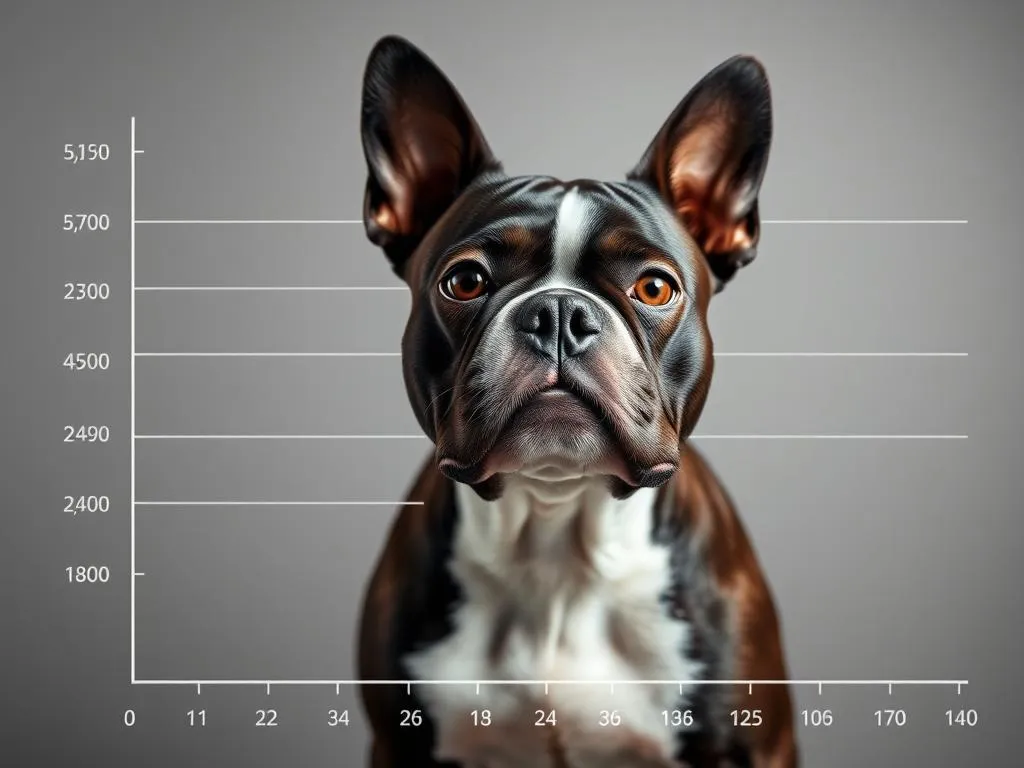
Introduction
The health care of dogs is a critical aspect of responsible pet ownership, ensuring that our furry companions lead long, happy, and healthy lives. Among the many breeds, Boston Terriers stand out for their charming personality and unique characteristics. Understanding their size, weight, and growth patterns is essential for any Boston Terrier owner. This knowledge not only aids in monitoring their health but also helps in providing them with optimal care. In this article, we will delve into the specifics of the Boston Terrier size weight growth chart, offering insights into their growth stages, health monitoring, and tips for maintaining a healthy lifestyle.
Understanding Boston Terriers
Breed Characteristics
Boston Terriers are small, compact dogs known for their friendly demeanor and intelligence. They typically exhibit a tuxedo-like coat pattern, which adds to their charm. Their playful and affectionate nature makes them excellent companions for families and individuals alike. Boston Terriers are generally easy to train, thanks to their eagerness to please and their high intelligence.
However, like all breeds, Boston Terriers are prone to certain health issues. Some common concerns include brachycephalic airway syndrome, which affects their breathing, and patellar luxation, a condition where the kneecap dislocates. Understanding these traits and potential health issues is crucial for any owner looking to provide the best care possible for their Boston Terrier.
Size and Weight
Boston Terriers are classified as a small breed, typically weighing between 12 to 25 pounds and standing around 15 to 17 inches tall at the shoulder. Their compact size makes them ideal for apartment living, but it’s important to note that they require regular exercise to maintain a healthy weight.
When compared to other small dog breeds, such as Chihuahuas or Pugs, Boston Terriers tend to be slightly heavier and more muscular. This size range can vary based on factors such as genetics, diet, and overall health, which we will explore further in this article.
Growth Chart for Boston Terriers
Importance of Growth Charts
Growth charts serve as a valuable tool for pet owners, allowing them to track their dog’s development and ensure they are growing at a healthy rate. Monitoring your Boston Terrier’s size and weight against a growth chart can help identify potential health issues early on, enabling timely intervention if needed.
Boston Terrier Growth Chart
Here’s a detailed breakdown of the Boston Terrier growth chart by age:
| Age Range | Average Weight (lbs) | Average Height (inches) |
|---|---|---|
| 0-3 months | 4-8 | 8-12 |
| 4-6 months | 8-12 | 12-14 |
| 7-12 months | 12-16 | 14-16 |
| 1-2 years | 12-25 | 15-17 |
- 0-3 months: During this initial stage, puppies are rapidly developing. They should gain approximately 1-2 pounds per week.
- 4-6 months: As they approach adolescence, their growth begins to slow. Weight gain during this period is typically around 2-4 pounds.
- 7-12 months: Most Boston Terriers reach their adult height by this stage, although they may continue to fill out and gain muscle mass.
- 1-2 years: By the end of this period, Boston Terriers should reach their full adult weight and size.
Measuring your Boston Terrier regularly is vital. Use a scale and a tape measure to track their weight and height, ensuring that they fall within the average ranges for their age.
Factors Influencing Size and Weight
Genetics
Genetics play a significant role in determining the size and weight of Boston Terriers. Just like humans, dogs inherit traits from their parents. If a puppy’s parents are larger or smaller than average, it’s likely that the puppy will follow suit. Additionally, some genetic conditions can affect growth, such as dwarfism or other hereditary health issues. Understanding your Boston Terrier’s lineage can provide insights into their expected size and potential health risks.
Nutrition
Nutrition is paramount in ensuring your Boston Terrier grows healthy and strong. A balanced diet tailored to their age, weight, and activity level is crucial. It’s recommended to feed them high-quality dog food that lists meat as the first ingredient, supplemented with vegetables and grains.
Feeding schedules are equally important. Puppies typically require three to four meals a day, while adults can thrive on two meals. Be cautious about overfeeding, as Boston Terriers can be prone to obesity. Always monitor their weight and adjust their food intake accordingly. Also, be mindful of potential dietary issues, such as allergies or sensitivities, which can lead to skin conditions or gastrointestinal problems.
Exercise and Activity Levels
Regular exercise is essential for maintaining a healthy weight and ensuring proper growth in Boston Terriers. They are an energetic breed that enjoys playful activities and walks. Aim for at least 30 minutes of exercise per day, which can include walks, playtime, or interactive games.
Exercise not only helps in weight management but also supports their mental health, reducing the risk of behavioral problems. Engaging your Boston Terrier in activities such as agility training or obedience classes can provide them with both physical and mental stimulation.
Health Monitoring
Regular Vet Check-ups
Routine veterinary visits are crucial for monitoring your Boston Terrier’s health. These check-ups allow for early detection of potential health issues and provide opportunities for vaccinations and preventative care. During these visits, the vet will monitor key health metrics such as weight, heart rate, and dental health.
Keeping a record of your dog’s growth and health metrics can be beneficial for both you and your veterinarian, ensuring that any changes in health can be addressed promptly.
Vaccinations and Preventative Care
Vaccinations are vital in protecting your Boston Terrier from various diseases. Essential vaccines include:
- Distemper
- Parvovirus
- Rabies
- Bordetella (Kennel Cough)
In addition to vaccinations, preventative treatments for fleas, ticks, and heartworms are imperative. Regularly consulting your veterinarian about the best preventative care plan will help keep your Boston Terrier healthy.
Recognizing Health Issues
Being attentive to your Boston Terrier’s behavior and physical condition is key in recognizing health issues early. Common signs that may indicate problems include:
- Changes in appetite
- Excessive barking or whining
- Lethargy or decreased activity
- Vomiting or diarrhea
- Coughing or difficulty breathing
If you notice any of these signs, it’s essential to consult your veterinarian as soon as possible. Early intervention can make a significant difference in the outcome of many health issues.
Tips for Maintaining a Healthy Boston Terrier
Creating a Healthy Environment
Providing a safe and comfortable living space is crucial for your Boston Terrier’s well-being. Ensure that your home is dog-proofed, removing any hazards such as toxic plants or small objects they could swallow. A designated space for your dog, complete with a cozy bed and toys, will help them feel secure and relaxed.
Establishing a Routine
Establishing a consistent daily routine is essential for your Boston Terrier’s mental and physical health. Regular schedules for feeding, exercise, and rest help provide structure and predictability in their lives. This routine can also aid in training and socializing your dog, promoting good behavior and reducing anxiety.
Training sessions should be positive and rewarding, reinforcing good behavior with treats or praises. Socializing your Boston Terrier with other dogs and people can help them grow into well-adjusted adults.
Resources for Dog Owners
As a Boston Terrier owner, connecting with fellow dog lovers can be invaluable. Many online forums, social media groups, and local clubs are dedicated to Boston Terriers. Sharing experiences and tips with other owners can provide support and deepen your understanding of this unique breed. There are also many resources available, such as books and websites, that focus specifically on Boston Terrier care.
Conclusion
Understanding the Boston Terrier size weight growth chart is crucial for ensuring your dog’s health and well-being. By monitoring their growth, nutrition, and overall health, you can provide the best care possible. Regular vet check-ups, vaccinations, and a healthy lifestyle will contribute significantly to your Boston Terrier’s quality of life. Responsible pet ownership involves being proactive about your dog’s health, and by following the tips outlined in this article, you can help ensure your Boston Terrier remains a happy and healthy companion for years to come.









